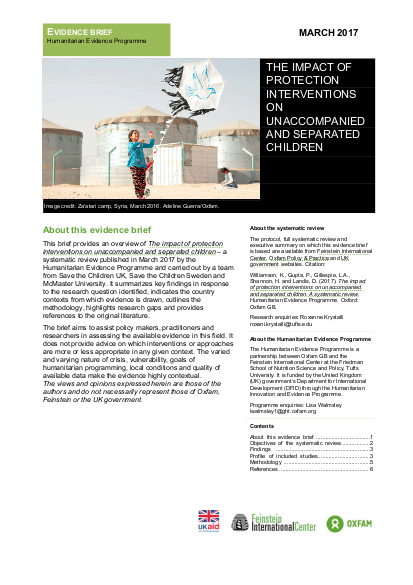
This is an evidence brief, accompanying the full systematic review on the impact of protection interventions on unaccompanied and separated children in humanitarian settings.
During conflicts and crises, children often face multiple stressors that can have significant impacts on their physical, cognitive, social and emotional development. Because unaccompanied and separated children (UASC) have lost the care and protection of their primary caregivers, they face a heightened risk of abuse, neglect, exploitation and violence. As a result, programming for UASC cases is often prioritized in the context of humanitarian interventions. But what is the impact of protection interventions on UASC in humanitarian crises in low and middle income countries? How effective are child protection activities specific to UASC at restoring a protective environment? How effective are interventions aimed at preventing and responding to abuse, exploitation, violence and neglect at ensuring the safety of UASC? How effective are mental health and psychosocial support interventions in promoting the mental health and psychosocial well-being of UASC? This systematic review synthesizes and evaluates the existing evidence base in order to find a response.